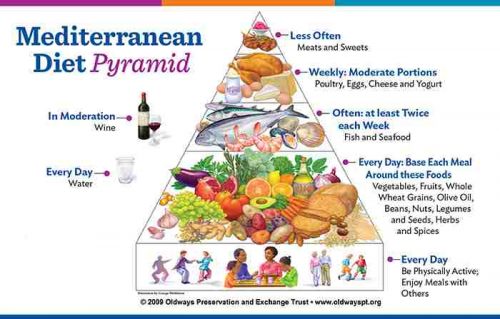Simply changing your eating schedule like taking the last meal of the day by the mid-afternoon and maintaining balanced diets can help burn fat and lose weight, suggests new research.
The study that tested early time-restricted feeding (eTRF) on humans found that this meal-timing strategy reduced swings in hunger and altered fat and carbohydrate burning patterns, which may help with losing weight.
With eTRF, people eat their last meal by the mid-afternoon and do not eat again until breakfast the next morning.
“Eating only during a much smaller window of time than people are typically used to may help with weight loss,” said one of the researchers Courtney Peterson, Associate Professor at University of Alabama at Birmingham in the US.
The human body has an internal clock, and many aspects of metabolism are at their optimal functioning in the morning.
Therefore, eating in alignment with the body’s circadian clock by eating earlier in the day may positively influence health.
Previous animal studies showed that early time-restricted feeding helped rodents burn more fat.
During the current study, Peterson and her colleagues followed a small group of men and women with excess weight over four days of eating between 8 a.m. and 2 p.m., and four days of eating between 8 a.m. and 8 p.m.
Researchers then tested the impact of the meal timing strategy on calories burned, fat burned and appetite.
Participants tried both eating schedules, ate the same number of calories both times and completed all testing under supervision.
Researchers found that, although eTRF did not affect how many total calories participants burned, it reduced daily hunger swings and increased fat burning during several hours at night.
The results presented at the annual meeting of The Obesity Society in New Orleans, showed that it also improved metabolic flexibility, which is the body’s ability to switch between burning carbohydrates and burning fats.
Whether early time-restricted feeding helps with long-term weight loss or improves other aspects of health is still unknown.

Diabetes experts have also warned against Paleo diet, which can increase weight. A low-carbohydrate, high-fat diet for just eight weeks can lead to rapid weight gain and health complications.
With the research finding, in Nature journal Nutrition and Diabetes, University of Melbourne researchers have issued warning against fad diets that are yet to produce any scientific evidence.
“Low-carbohydrate, high-fat diets are becoming more popular, but there is no scientific evidence that these diets work.
“In fact, if you put an inactive individual on this type of diet, the chances are that person will gain weight,” said author, Associate Prof Sof Andrikopoulos.
As required in Paleo diet, the research model tried to mimic with participants eating zero carbs and lots of fat.
“But we didn’t see any improvements in weight or symptoms. In fact, they got worse. The bottom line is it’s not good to eat too much fat.”
Prof Andrikopoulos rather proposed the Mediterranean diet which is “backed by evidence and is a low-refined sugar diet with healthy oils and fats from fish and extra virgin olive oil, legumes and protein.”
Mishka Anderson

